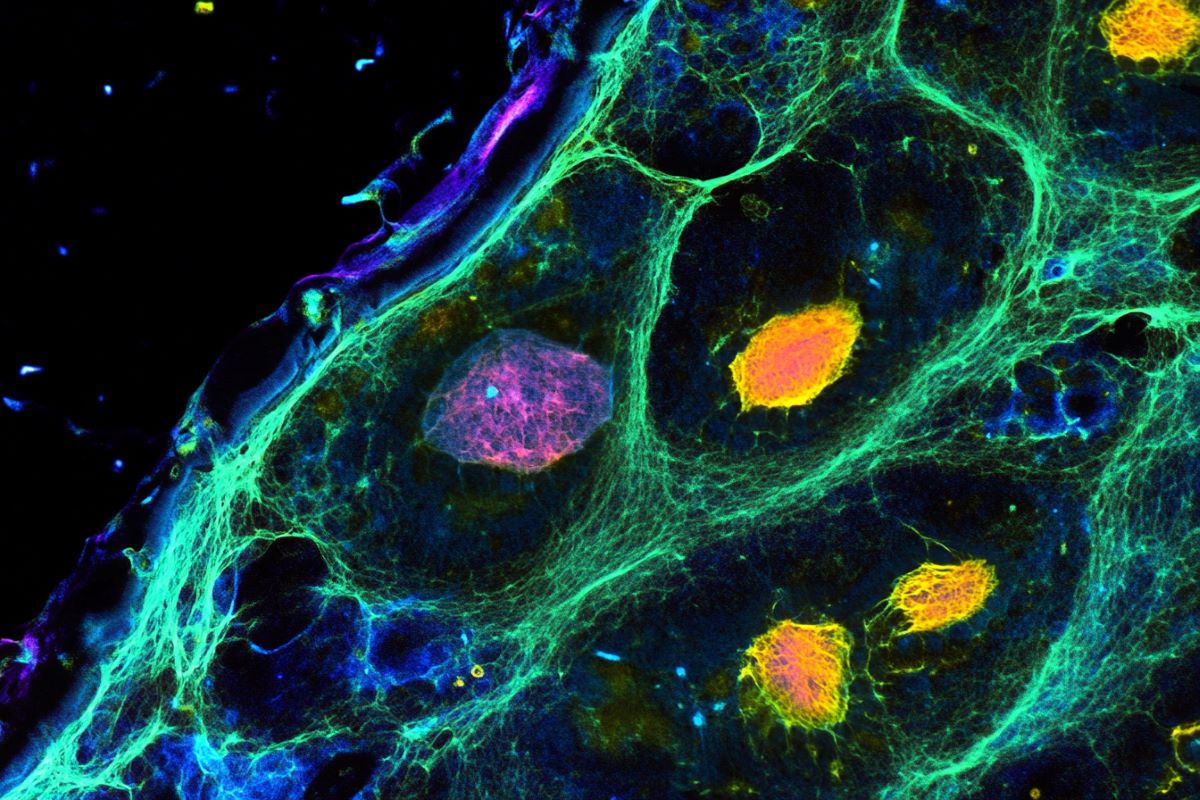Summary: A study reveals how brain cell interactions influence aging, showing that rare cell types either accelerate or slow brain aging. Neural stem cells provide a rejuvenating effect on neighboring cells, while T cells drive aging through inflammation. Researchers used advanced AI tools and a spatial single-cell atlas to map cellular interactions across the lifespan

EDITORIAL: A promising future in robotics – Taipei Times
Taiwan could play a significant role in the development of robots, given the country’s strengths in chip manufacturing and software design, Taiwan Semiconductor Manufacturing Co (TSMC) chairman C.C. Wei (魏哲家) said on Monday.
It is perhaps debatable whether Taiwan excels at software design, but its prowess in chip manufacturing is a globally acknowledged fact. Taiwan produces more than 60 percent of the world’s semiconductors, with TSMC leading the industry and producing chips for major companies, including Apple and Nvidia.
In his speech on Monday at the National Science and Technology Conference in Taipei, Wei said “a rich guy” — believed to be Tesla CEO Elon Musk — told him that he would focus on robots in the future. The man told Wei that chip availability is his biggest concern about those plans, which Wei dismissed as a problem easily solved by money.
Those comments are the biggest takeaway from Wei’s speech, which gets to the crux of the matter: Taiwan should seek partnerships that leverage its strengths to give it the greatest advantage amid changing trends in technology.
Companies such as Tesla, Nvidia, OpenAI and Google excel at the development of software that employs deep learning, but they need chips. Artificial intelligence (AI) systems comprise specific, interdependent hardware and software components.
Wei is right to be thinking about the industry’s future. As the adage goes, in business you innovate or die. TSMC cannot survive in a vacuum, expecting orders for chips to keep rolling in indefinitely. Besides, there are two very good reasons for TSMC — and Taiwan — to get behind AI and robotics: the population crisis and the looming threat of war.
Fortunately, the government has demonstrated acknowledgement of the importance of AI, and has already begun investing in it. President William Lai (賴清德), who was present at Monday’s event, said that NT$196.5 billion (US$6.01 billion) would be budgeted for developments in science and technology. The Executive Yuan’s Economic Development Commission would invest in 140 major infrastructure projects, of which 100 have already commenced, he added.
The Ministry of National Defense has been investing heavily in drones, which Wei also acknowledged as an important segment to focus on, and those drones would also rely on autonomous AI-powered systems. Robots might factor into future conflicts, too, particularly for use in frontline battles, where they could integrate with drones in the air and engage the enemy while keeping soldiers out of harm’s way.
However, while war is not inevitable, aging is, and that is one area where robots could be tremendously helpful. For example, in Japan roughly 10 percent of nursing homes have already acquired some type of robotic device to help with basic tasks. Although such devices are still expensive and require maintenance, they would only become less costly and more efficient over time. Japan has also already tested the use of AI in drug design, and robotics have been used in surgery for 24 years now, thanks to the da Vinci Surgical System.
Taiwan is certainly capable of building the chips to power AI and robotics systems, but has much room for progress on the software side of things.
TSMC and other major chipmakers in Taiwan should look at options for cooperation with those US companies, either through partnerships on software development, promotion of an AI research hub in Taiwan or other mutually beneficial forms of exchange. The government could also consider investing some of the funds budgeted for science and technology into bolstering computer science programs at National Taiwan University and other public schools.
Taiwan can excel in AI and robotics, but it must bolster software development in the nation, bringing it in line with Taiwan’s prowess in chip manufacturing.



